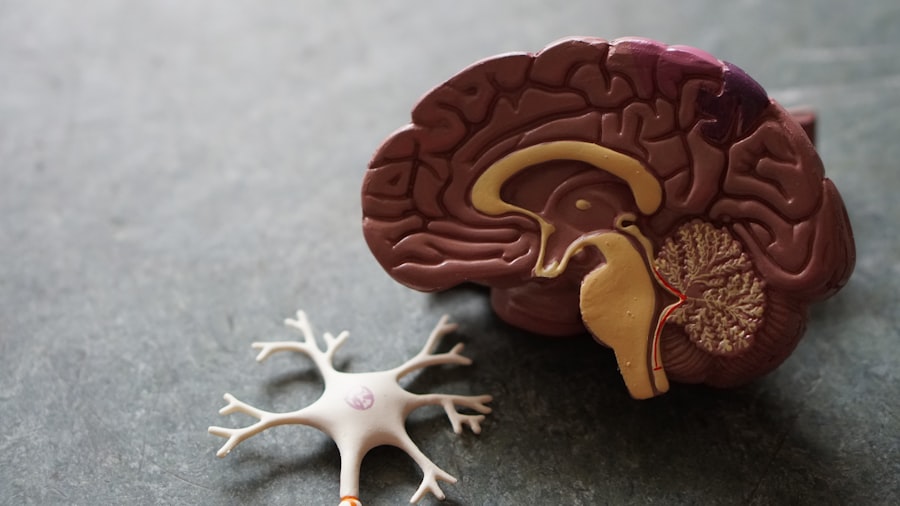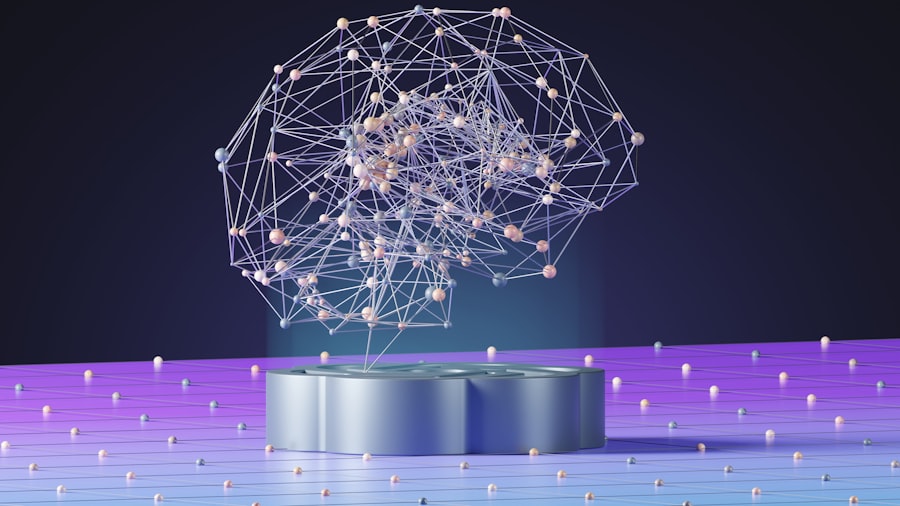Memory is often perceived as a reliable repository of our past experiences, yet it is more akin to a fluid narrative that can be reshaped over time. You may find yourself recalling events with vivid detail, only to discover later that your recollection is not entirely accurate. This phenomenon occurs because memory is not a perfect recording; rather, it is a reconstructive process.
Each time you retrieve a memory, you may inadvertently alter it, influenced by your current emotions, beliefs, and even the context in which you remember. This malleability can lead to the creation of false memories, where you believe you experienced something that never actually happened. As you navigate through life, the illusion of memory can have profound implications.
You might trust your recollections implicitly, using them as a foundation for your decisions and beliefs. However, the reality is that your memories can be influenced by external factors such as media portrayals or conversations with others. This means that what you think you know about your past may be tainted by inaccuracies.
Understanding this aspect of memory can empower you to approach your recollections with a critical eye, recognizing that they are not infallible truths but rather subjective interpretations of your experiences.
Key Takeaways
- Memory is not as reliable as we think, and can be easily influenced and distorted.
- Our cognitive biases and distortions can lead us to make flawed judgments and decisions.
- Emotions can greatly impact our perception and lead to biased thinking.
- Suggestion and persuasion have the power to manipulate our beliefs and actions.
- Social influence can lead to deception and reinforce stereotypes and prejudices.
Cognitive Biases and Distortions
Cognitive biases are systematic patterns of deviation from norm or rationality in judgment, and they can significantly distort your perception of reality. You may find yourself favoring information that confirms your pre-existing beliefs while dismissing evidence that contradicts them. This tendency, known as confirmation bias, can lead you to form opinions based on incomplete or skewed information.
As you engage with the world around you, it’s essential to be aware of these biases and how they shape your understanding. Moreover, cognitive distortions can manifest in various ways, such as overgeneralization or catastrophizing. You might catch yourself thinking that one negative experience defines your entire life or that a minor setback is a catastrophic failure.
These thought patterns can cloud your judgment and lead to unnecessary stress and anxiety. By recognizing these cognitive distortions, you can begin to challenge them and cultivate a more balanced perspective. This awareness allows you to make more informed decisions and engage with the world in a healthier way.
The Influence of Emotions on Perception

Your emotions play a crucial role in shaping how you perceive the world around you. When you are feeling happy, for instance, you may view situations through a more optimistic lens, interpreting events in a positive light. Conversely, when you are experiencing sadness or anger, your perception may become clouded by negativity, leading you to focus on the adverse aspects of a situation.
This emotional influence can create a feedback loop where your feelings affect your perceptions, which in turn can reinforce those feelings. Understanding the interplay between emotions and perception is vital for navigating your daily life. You might find that taking a step back during emotionally charged moments allows you to assess situations more objectively.
By acknowledging how your feelings impact your viewpoint, you can strive for a more balanced understanding of events. This practice not only enhances your decision-making but also fosters healthier relationships with others, as you become more aware of how emotions can color interactions.
The Power of Suggestion and Persuasion
| Technique | Definition | Example |
|---|---|---|
| Social Proof | Using evidence that others have adopted a certain behavior or belief to persuade someone to do the same. | Showing testimonials or reviews from satisfied customers. |
| Reciprocity | Offering something to someone in return for their compliance. | Providing a free sample of a product to encourage a purchase. |
| Scarcity | Creating a sense of urgency by highlighting limited availability or a deadline. | “Only 3 items left at this price!” |
| Authority | Using the influence of an expert or credible source to persuade others. | Quoting a respected industry leader in an advertisement. |
| Consistency | Getting someone to agree to a small request, then gradually increasing the size of the request. | Starting with a survey and then asking for a larger commitment. |
The power of suggestion is an intriguing aspect of human psychology that can significantly influence your thoughts and behaviors. You may not realize how susceptible you are to subtle cues in your environment or the words of others. For instance, when someone presents an idea with confidence, you might find yourself more inclined to accept it without question.
This phenomenon highlights the importance of critical thinking; being aware of how easily your mind can be swayed can help you maintain autonomy over your beliefs. Persuasion techniques are often employed in various contexts, from advertising to politics. You might encounter persuasive messages designed to elicit specific responses or actions from you.
Understanding the mechanisms behind these techniques can empower you to resist manipulation and make choices based on informed reasoning rather than emotional reactions. By honing your ability to discern persuasive tactics, you can navigate social interactions and media consumption with greater awareness and intention.
The Role of Social Influence in Deception
Social influence plays a significant role in shaping your beliefs and behaviors, often leading to deception—both self-deception and deception by others. You may find yourself conforming to group norms or opinions even when they conflict with your own values or knowledge. This desire for acceptance can lead to a distortion of reality, where you prioritize social harmony over truth.
Recognizing this tendency is crucial for maintaining authenticity in your interactions and decisions. Moreover, the influence of social media has amplified the potential for deception in contemporary society. You might encounter misinformation or manipulated narratives that spread rapidly through social networks.
By cultivating a critical mindset and seeking diverse perspectives, you can mitigate the effects of social influence and make more informed choices that align with your true beliefs.
The Impact of Stereotypes and Prejudices

Stereotypes and prejudices are pervasive elements of human cognition that can distort your perceptions of individuals and groups. You may find yourself making snap judgments based on preconceived notions about someone’s race, gender, or background. These mental shortcuts can lead to unfair assessments and reinforce societal inequalities.
Acknowledging the existence of these biases within yourself is the first step toward fostering a more inclusive mindset. Challenging stereotypes requires conscious effort and self-reflection. You might consider engaging with individuals from diverse backgrounds to broaden your understanding and dismantle preconceived notions.
By actively seeking out different perspectives, you can cultivate empathy and appreciation for the complexities of human experience. This process not only enriches your worldview but also contributes to creating a more equitable society where individuals are seen for who they truly are rather than through the lens of stereotypes.
The Dangers of Confirmation Bias
Confirmation bias is a cognitive trap that can lead you down a path of distorted reasoning and flawed conclusions. When you seek out information that aligns with your existing beliefs while ignoring contradictory evidence, you risk entrenching yourself in an echo chamber of ideas. This bias can hinder personal growth and limit your ability to engage with differing viewpoints constructively.
Recognizing this tendency within yourself is essential for fostering intellectual humility and openness. To combat confirmation bias, consider actively seeking out diverse sources of information that challenge your beliefs. Engaging in discussions with individuals who hold opposing views can provide valuable insights and broaden your understanding of complex issues.
By embracing discomfort and uncertainty, you create opportunities for growth and learning that enrich your perspective on the world.
The Fallibility of Intuition
Intuition often feels like an innate guide, leading you toward decisions based on gut feelings or instinctual responses. However, relying solely on intuition can be misleading; it is shaped by personal experiences and biases that may not always reflect reality accurately. You might find that what feels right in the moment does not always align with logical reasoning or empirical evidence.
Acknowledging the fallibility of intuition allows you to approach decision-making with greater caution. To enhance your decision-making process, consider balancing intuition with analytical thinking. Taking the time to gather relevant information and evaluate options critically can lead to more informed choices.
While intuition has its place in guiding quick decisions or creative endeavors, grounding yourself in rational thought ensures that your choices are well-considered and aligned with your values.
The Deceptive Nature of Attention and Focus
Attention is a limited resource; what you choose to focus on shapes your perception of reality significantly. You may find yourself drawn to certain stimuli while overlooking others entirely—a phenomenon known as selective attention. This selective focus can create blind spots in your understanding, leading to misinterpretations or incomplete assessments of situations.
Being aware of how attention operates allows you to cultivate mindfulness in your daily life. Practicing mindfulness techniques can help enhance your awareness of attention’s deceptive nature. By training yourself to observe thoughts and sensations without judgment, you create space for greater clarity in perception.
This practice enables you to engage more fully with the present moment while reducing the likelihood of being misled by distractions or biases.
The Influence of Culture on Perceptions
Culture profoundly shapes how you perceive the world around you; it influences values, beliefs, and social norms that guide behavior and interpretation. You may find that cultural background affects how you interpret events or interact with others—what is considered polite or appropriate behavior varies widely across cultures. Recognizing these cultural influences is essential for fostering cross-cultural understanding and empathy.
To navigate cultural differences effectively, consider immersing yourself in diverse environments and engaging with individuals from various backgrounds. This exposure broadens your perspective and challenges assumptions rooted in your cultural upbringing. By embracing cultural diversity, you enrich your understanding of human experience while fostering connections that transcend boundaries.
Strategies for Overcoming Deceptive Thinking
Overcoming deceptive thinking requires intentional effort and self-awareness. One effective strategy is cultivating critical thinking skills; questioning assumptions and evaluating evidence helps guard against cognitive biases and distortions. You might also consider journaling as a tool for reflection—writing down thoughts allows you to examine them objectively and identify patterns that may lead to deceptive reasoning.
Additionally, seeking feedback from trusted friends or mentors can provide valuable insights into blind spots in your thinking. Engaging in open dialogue encourages diverse perspectives that challenge entrenched beliefs while fostering personal growth.
In conclusion, understanding the intricacies of human perception is essential for navigating the complexities of life effectively. By recognizing the illusions created by memory, cognitive biases, emotions, social influences, stereotypes, and cultural contexts, you equip yourself with tools for critical thinking and self-reflection. Embracing these insights fosters personal growth while enhancing relationships with others—ultimately leading to a richer understanding of the world around you.
In exploring the intricacies of human cognition, the article “Why Our Brain Lies” delves into the fascinating ways our minds can deceive us, often without our conscious awareness. A related article that complements this discussion can be found on the Hey Did You Know This website. This piece further examines the quirks of human perception and cognition, providing additional insights into why our brains might not always present reality as it truly is. For more on this intriguing topic, you can read the related article on Hey Did You Know This.
WATCH THIS! Don’t Believe Everything You Think — Your Brain Is A Master Trickster!
FAQs
What is the article “Why Our Brain Lies” about?
The article “Why Our Brain Lies” discusses the various ways in which our brain can deceive us, leading to cognitive biases, false memories, and distorted perceptions.
What are some examples of cognitive biases mentioned in the article?
The article mentions examples of cognitive biases such as confirmation bias, where we seek out information that confirms our existing beliefs, and availability bias, where we overestimate the importance of information that is readily available to us.
How does the article explain the phenomenon of false memories?
The article explains that false memories can be created through suggestion, leading to the recall of events that never actually occurred. It also discusses the role of emotions and imagination in the formation of false memories.
What are some practical implications of understanding how our brain lies?
The article suggests that understanding how our brain lies can help us make better decisions, improve critical thinking skills, and become more aware of our own cognitive biases. It can also help in the fields of psychology, law, and marketing.
What are some strategies mentioned in the article for overcoming cognitive biases?
The article mentions strategies such as seeking out diverse perspectives, being open to changing our minds, and actively challenging our own assumptions and beliefs as ways to overcome cognitive biases.
